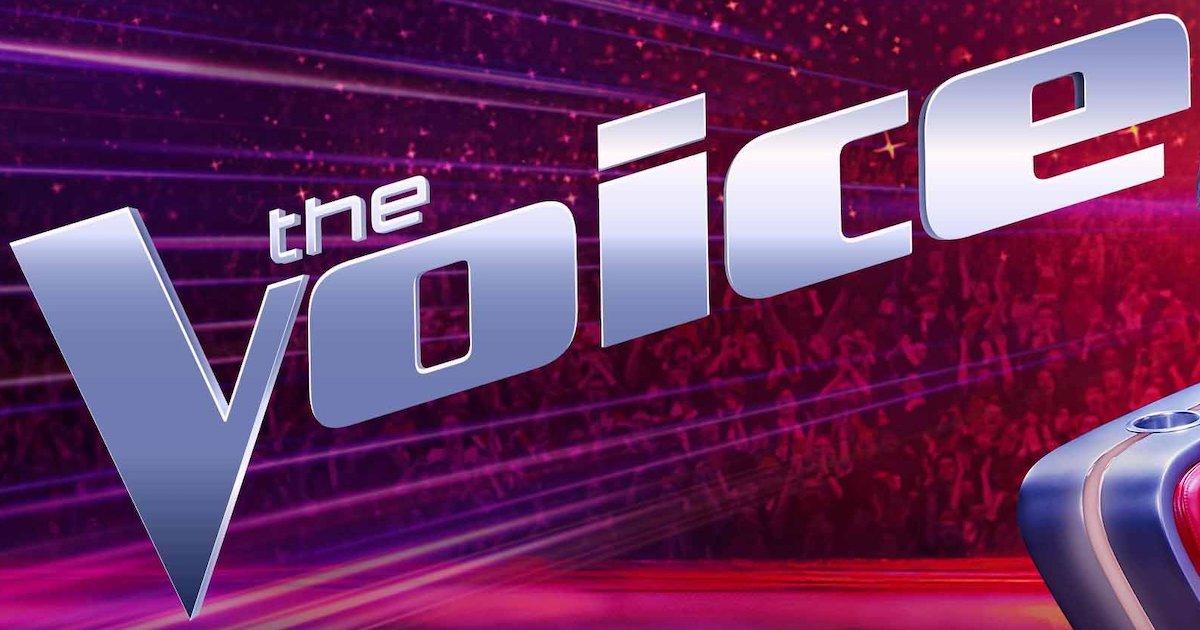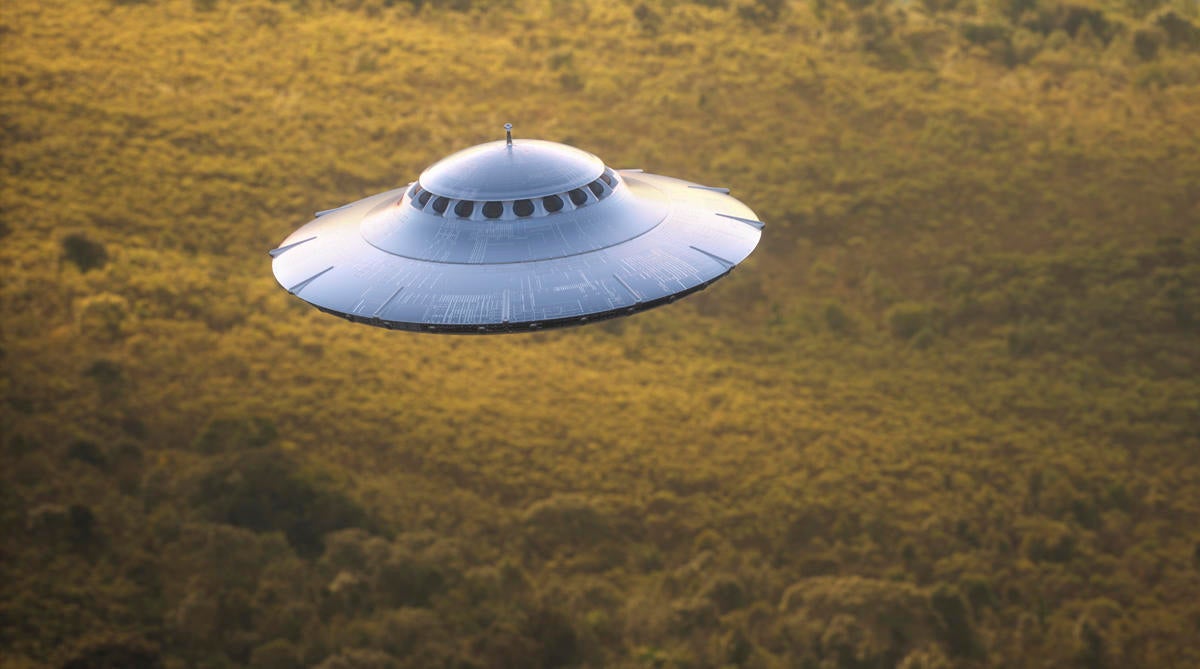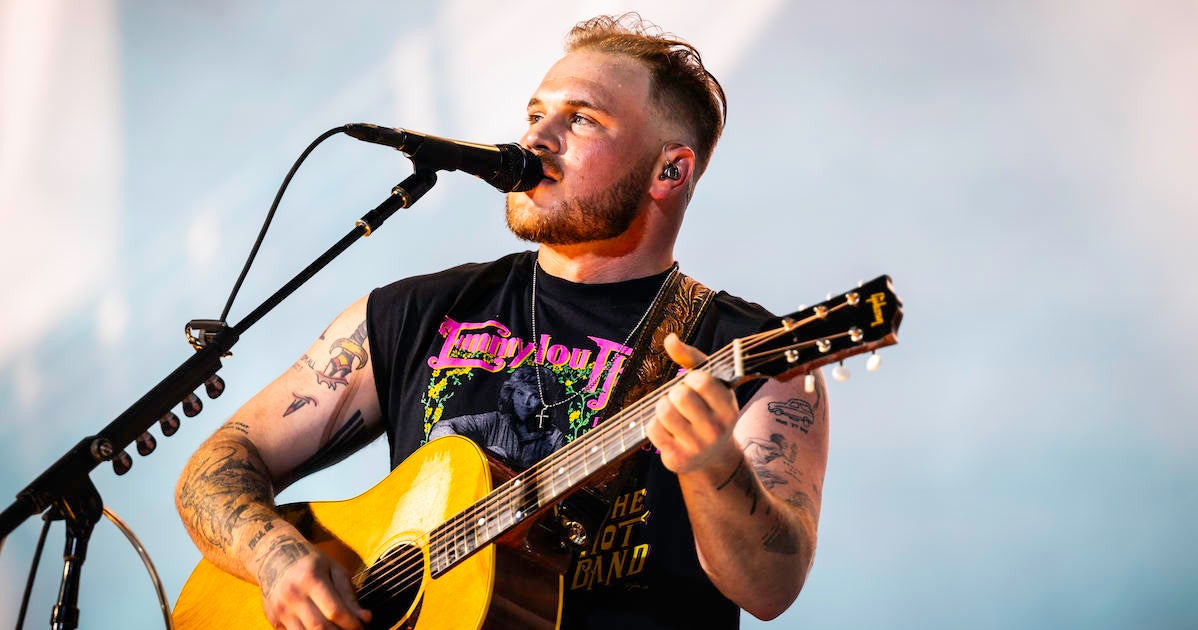Three Takeaways From Marvel’s ‘Echo’
:no_upscale()/cdn.vox-cdn.com/uploads/chorus_asset/file/25219449/spoiler_warning_v2.2__1_.jpg)
More than 15 years after Iron Man premiered in 2008, the Marvel Cinematic Universe continues to expand and reinvent itself. After the unprecedented success of the Infinity Saga, Marvel Studios has looked for new ways to diversify its storytelling platforms and extend its reach to new audiences. In 2021, WandaVision became the studio’s first foray into the world of TV. A year later, Werewolf by Night became the first Marvel Studios Special Presentation, a streaming offshoot in the form of a TV special. And earlier this week, Echo became the studio’s first TV series to fall under the new Marvel Spotlight banner.
Marvel Studios, which binge dropped all five episodes of Echo’s first season on Disney+ and Hulu on Tuesday night, has produced 10 TV series in the span of three years. The latest, which stars Alaqua Cox as Maya Lopez, extends Lopez’s story after her introduction in 2021’s Hawkeye, which concluded when she shoots Kingpin (Vincent D’Onofrio) in the face. Like much of the work we see from Marvel these days, Echo is something of a mixed bag: There’s plenty to like about the story, which centers on a (relatively) new addition to the MCU, but the show also exhibits some familiar issues that many of the studio’s TV shows have suffered from.
With a darker tone and some of the most violent action sequences in the history of the MCU, Echo hearkens back to Marvel Television’s Netflix shows, with which it shares a TV-MA rating (a first for Marvel Studios). Despite its shortcomings, the series offers a refreshing change of pace from some of Marvel Studios’ past streaming entries, giving the studio a lot to learn from and reconsider as it revamps its TV production process. Here are my main takeaways from the first season of Echo.
Under the Marvel Spotlight
:no_upscale()/cdn.vox-cdn.com/uploads/chorus_asset/file/25219457/Screenshot_2024_01_11_at_9.30.46_AM.png)
Screenshots via Marvel Studios
According to Marvel Studios head of streaming Brad Winderbaum, Marvel Spotlight is designed to be a narrative space tailored toward audiences that wish to start a new series without having seen the various MCU TV shows that preceded it. That approach lends itself to “more grounded, character-driven stories.” At least, that’s how Winderbaum and the studio have advertised it. But just how different is Echo from Marvel’s previous TV series?
In the series premiere, “Chafa,” the first 28 minutes of the 51-minute running time (including credits) are dedicated to catching the audience up on Maya’s story. The mash-up of recycled footage from Hawkeye and new scenes that add insight into Lopez’s origins feels like an extended version of the opening to Hawkeye’s “Echoes,” with much of the same material repurposed as either an introduction or a refresher. On the one hand, the result is that more than half of the pilot has the drawn-out feel of an elevated “previously on” segment before the series starts in earnest. On the other hand, this expanded backstory also features some of the season’s finest moments, including the show’s most thrilling action sequence, in which Maya completes her first job working for Kingpin and takes on Daredevil (Charlie Cox) in one-on-one combat.
:no_upscale()/cdn.vox-cdn.com/uploads/chorus_asset/file/25219458/Screenshot_2024_01_11_at_9.26.57_AM.png)
For the most part, Echo succeeds in easing unschooled spectators into Lopez’s story, sketching out the broad strokes of what happened in Hawkeye for anyone who either skipped the series or needed a reminder more than two years after its conclusion. Despite these pronounced efforts to create an easy entry point into Echo, the series is still, in essence, a spinoff: The heart of its premise builds on the events of the Hawkeye finale, which included Maya’s shooting of Fisk. And as such, Echo is a bit of an odd choice as a test case for Marvel Spotlight.
So much of the hype in and around Echo hinges on fans’ familiarity with Kingpin and his grand return after the cancellation of Netflix’s Daredevil series in 2018. Two of the five episodes end with teases to further build the anticipation of D’Onofrio’s return: The closing moments of the pilot reveal that Kingpin is still alive, while the third episode concludes with a prolonged, dramatic reunion between Fisk and Lopez as he stands before her for the first time since she shot him. Daredevil makes a brief cameo in the premiere, which manages to maintain its focus on Maya’s perspective while incorporating the hero of Hell’s Kitchen in an engaging and natural way that showcases Maya’s own fighting prowess. (Of course, it’s also a bit of well-placed fan service early in the series to lure in MCU fans who are itching for more Daredevil.) Yet Kingpin’s role throughout the season sometimes runs the risk of overshadowing Maya in her own story.
Some of the best parts of Echo come when the show centers Maya’s relationship with the rest of her extended family and the family members themselves. Chula (Tantoo Cardinal) and Skully’s (Graham Greene) relationship is one of the show’s most charming dynamics, and their interactions with Maya bring out the humanity in her character in a way that allows Cox to bring depth, humor, and emotion to her performance beyond the blinding rage that she’s limited to for much of the season. The same can be said of Maya’s closeness with her cousin and best friend, Bonnie (Devery Jacobs), as well as with her other, goofier cousin, Biscuits (Cody Lightning). The only problem is that most of these supporting characters don’t get nearly as much screen time as they deserve: Maya and Chula have just one scene alone together, and Jacobs’s Bonnie is barely on-screen except for when she’s being held hostage or hanging out at the Tamaha Fire Department.
Echo is as much a series about Maya’s relationship with Fisk as it is about her time reconnecting with her family in Oklahoma and her Choctaw heritage, but the show would have benefited from an even greater focus on the latter. Echo does some welcome work in presenting Maya’s ancestors and weaving in Choctaw culture and mythology. However, the lack of development of Maya’s ancestral abilities and the underserved arcs of Chula and Bonnie make the climactic fight scene in the finale—in which the trio’s powers suddenly emerge just in time to beat Kingpin and his henchmen—feel unearned and, ultimately, too convenient as Fisk is defeated (again) in another MCU conclusion that prioritizes spectacle over substance.
At just five episodes, with the finale’s running time not even reaching the 40-minute mark, Echo is the shortest MCU TV series to date. It could have used a longer runway to make moments like that climactic fight scene—and the story line that connects Maya to her powerful female ancestors—pay off in a more meaningful way. As much as Marvel Spotlight has been promoted as a platform for character-driven stories, Echo dedicates perhaps too much of its limited running time to weaving in the events of Hawkeye and laying the groundwork for the upcoming Daredevil: Born Again.
In the end, Echo may be packaged differently than its MCU TV predecessors, but much of its formula remains about the same, for better or worse. Lopez certainly gets her chance to shine under the Marvel Spotlight, but Echo also works hard to reorient Kingpin within the MCU and plant narrative seeds that will eventually sprout in Daredevil: Born Again. Perhaps this is more of a marketing issue, with Marvel Studios overselling how self-contained these Marvel Spotlight stories would be when it could have just reframed this banner as the start of a new interconnected story that would limit its focus to the street-level corner of the MCU. Still, if the studio can build on some of Echo’s strengths, such as its more violent action sequences and a story that doesn’t revolve around universe-ending stakes, the Marvel Spotlight brand may prove to be a compelling pipeline for projects outside the chaos of the Multiverse Saga.
Reintroducing Maya Lopez
:no_upscale()/cdn.vox-cdn.com/uploads/chorus_asset/file/25219460/Screenshot_2024_01_11_at_9.42.04_AM.png)
While Echo has its share of issues, it’s still a major step up from the low of last year’s Secret Invasion (even if that bar is so low that it’s almost touching the floor). And a big reason for that improvement is the way Echo reintroduces and recontextualizes Lopez after her debut as a villain in Hawkeye.
As a deaf, Native American amputee, Echo is unlike any previous superhero, and Cox supplies a powerful and charismatic performance to bring her to life on the screen. It’s exceedingly rare for a TV series, let alone one about superheroes, to center a deaf protagonist, and Echo does a good job of presenting this characteristic as a part of how she navigates her world, rather than as an obstacle she has to overcome. Many of the characters around Maya speak in American Sign Language, and the cast does a tremendous job of conveying emotion through their facial expressions and hand movements. (At the same time, the narrative choice to make Kingpin unable—or, rather, unwilling—to learn ASL to communicate with Maya is a subtle way to say a lot about their relationship and Fisk’s personality.) Additionally, the sound design’s shift to Maya’s heartbeat as it drowns out other noise is just one of the effective ways the show captures its protagonist’s perspective.
Marvel also deserves some credit for its efforts to bring a level of authenticity to the show’s representation of Choctaw culture that few major Hollywood studios have prioritized. The creative team behind Echo worked closely with the Choctaw Nation to ensure accuracy in how the Choctaw language was spoken, how Choctaw history was portrayed, and how Choctaw imagery was represented. That history and culture are naturally weaved into the story in the form of Maya’s family and how she rediscovers and redefines herself by reconnecting with her past.
As much as there is to appreciate about Echo’s approach to deaf and Indigenous representation, the show could have done more to flesh out Maya’s growth as a character as she transforms from a villain in Hawkeye into a full-fledged superhero in Echo. Lopez’s superpowers, which allow her to connect with her ancestors’ abilities in times of need, manifest late in the season but are never really explained or demonstrated clearly. Her new powers also differ vastly from those of the comics character, making it even more crucial to illustrate how they work (and how she’s able to share them with others, as she does with Chula and Bonnie in the finale). If Echo had devoted more time to Maya’s growth and how she harnessed this novel talent for tapping into her past, the conclusion could have felt fully satisfying, rather than leaving the impression that disparate stories were awkwardly welded together in time for the end of the story.
The Return of the Kingpin
:no_upscale()/cdn.vox-cdn.com/uploads/chorus_asset/file/25219464/Screenshot_2024_01_11_at_9.29.03_AM.png)
In Hawkeye, the prospect of D’Onofrio’s MCU debut became increasingly likely after the character known as “Uncle” entered the picture in the third episode. By the time Kingpin appeared in a grainy screenshot during the closing seconds of Episode 5, the anticipation of his impending arrival only slightly outweighed the sense that the writers were holding us hostage to ensure we’d keep watching a show about the one Avenger who brings a bow to every gunfight. In the Hawkeye finale, Kingpin takes an arrow to the chest, is run over by a car, and gets hurled across a room by explosive arrows—all before getting shot in the face. In short, Hawkeye didn’t give Kingpin the warmest of welcomes to the MCU before supposedly killing him off again.
In Echo, Kingpin’s presence is more pronounced from the jump. D’Onofrio is menacing as ever as the infamous Wilson Fisk, yet Echo also highlights his inner turmoil and his genuine love for Maya, tapping into some of the nuances of the character that helped make D’Onofrio’s portrayal such a captivating take on the iconic Daredevil villain in the first place. Most intriguing of all, Echo doesn’t shy away from the character’s past life on a non-Disney-owned streaming service, as Netflix’s Daredevil has basically been canonized in the MCU. (To make this move more official, Disney+ has added Daredevil—and the rest of the Defenders Netflix saga—into its MCU timeline.)
There’s still a lot we don’t know about how the events of Daredevil and the rest of the Defenders story lines will fit into the context of the complex MCU. We may have to wait until Daredevil: Born Again comes out to get a better sense of just how much Marvel Studios is choosing to keep and what will be forgotten. (For the latter, maybe we can start with every part of Iron Fist that didn’t have to do with Jessica Henwick’s Colleen Wing?) But Echo still picks its spots to highlight some memorable character details that fans of the Netflix series would recognize, including a certain story about Fisk’s childhood involving a hammer.
In the fourth episode, “Taloa,” Fisk reveals to Maya that his father didn’t just die when Fisk was a child—Fisk killed him. And he even held on to the hammer he used to do it. This story comes back into play in a major way in the finale: Maya uses her new abilities to attempt to heal Fisk and free him of the childhood pain he still carries by joining him in a shared memory of his father’s abuse of his mother. All of this is a callback to Daredevil, which showed a flashback of this incident from Fisk’s childhood in the Season 1 episode “Shadows in the Glass.” This is just one blip that takes place before the events of Daredevil really ramp up. But it’s also a defining moment in Fisk’s life. The fact that Echo not only honors that but also uses it as a major plot point shows that Marvel Studios may continue to weave the characters and events of its Netflix predecessors into future projects.
The post-credits scene of the season finale also teases what’s next for Kingpin as Marvel Studios gears up for the long-awaited Daredevil revival. After Kingpin (rather uncharacteristically) lets Maya go and leaves without so much as throwing a punch during their brief dustup at the Tamaha powwow, the stinger shows him watching the news on his private plane as it flies out of Oklahoma. The camera focuses on Fisk as he becomes more and more intrigued by what he’s seeing on the screen, and voices from the broadcast can be heard discussing the forthcoming mayoral election in New York City. One reporter highlights voters’ frustrations with the city, while the other says that “an outsider, somebody who is not afraid to take on the establishment” would make for a good candidate. (Even more on the nose, the reporter adds that New Yorkers want a “bare-knuckle brawler” in office.) The scene concludes when one of the reporters declares that “it could be anybody’s race,” and Fisk’s face all but confirms that he’ll be the one to win it.
Echo is setting up a story line in the comics in which Fisk actually became the mayor of New York City:
:no_upscale()/cdn.vox-cdn.com/uploads/chorus_asset/file/25219465/RCO021_1663930771.jpg)
Written by Charles Soule and illustrated by Stefano Landini, “Mayor Fisk” finds Daredevil navigating a version of New York City run by Fisk after the mob boss successfully rigs the election. Naturally, one of Fisk’s first moves in office is to enact anti-vigilante laws that outlaw street-level heroes like Daredevil and Spider-Man. As Matt Murdock tries to prove that Fisk rigged the election, he also has to deal with Fisk’s law enforcement: the Thunderbolts. What with all of the production and development problems that have plagued Daredevil: Born Again, not much has been revealed about the creative direction of the upcoming series. But the revelation that Fisk will be running for mayor provides us with our first real insight into what Charlie Cox’s Murdock will be up against and the comics source that the series may be drawing from.
Now, I still have a lot of lingering questions about what happened between Maya and Fisk in the Echo finale and what impact (if any) it will have on Fisk. The implication seems to be that Lopez tapped into her mother’s mystical healing powers to relieve Fisk’s pain and anger. But based on how he stands up and yells, “What did you do?” into Maya’s face, it seems like this guy still has years of therapy and anger management ahead of him.
At times, Kingpin’s outsized presence in Echo feels at odds with the parts of the story that concern Maya’s family and ancestry, and another loss at the hands of a fledgling superhero hasn’t exactly positioned Fisk as a formidable opponent ahead of Daredevil: Born Again. Between Spider-Man: No Way Home, She-Hulk: Attorney at Law, Hawkeye, and now Echo, Cox’s Daredevil and D’Onofrio’s Kingpin have had strange, disjointed, and tonally inconsistent reintroductions to the MCU. Echo, at least, manages to recapture some of the spirit of the Netflix series, but considering the reports of Born Again’s troubled gestation, Marvel Studios hasn’t inspired much confidence in a delivery. With this year’s confirmed small-screen release slate clear of live-action projects until fall’s Agatha: Darkhold Diaries, Marvel should have plenty of time to assess its next narrative moves.







